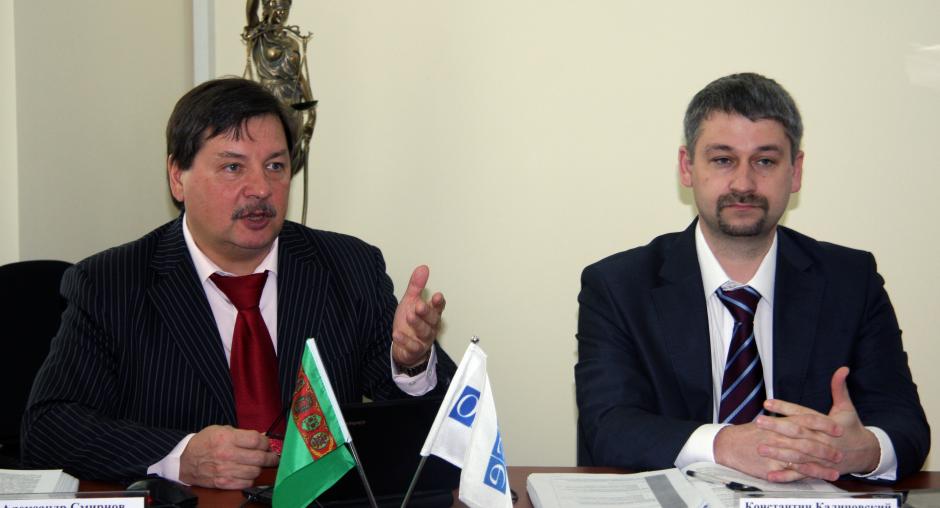Law students in Turkmenistan discuss pre-trial stages of criminal proceedings at OSCE lecture course

ASHGABAT, 28 April 2012 - Thirty students from the Law Faculty of the S.A. Niyazov Institute of the Ministry of Internal Affairs completed today in Ashgabat an OSCE-organized lecture series on human rights standards at the pre-trial stages of criminal proceedings.
The five-day course aimed to improve fourth-year students’ knowledge and understanding of international and national human rights standards and their applicability at the pre-trial stages in the course of the administration of criminal justice.
“This lecture series builds on the success of previous courses organized by the OSCE Centre at Turkmenistan’s higher education establishments to address different aspects related to the administration of criminal justice,” said Ambassador Sergei Belyaev, the Head of the OSCE Centre in Ashgabat.
“The course provides the students, who are about to launch their professional careers, with in-depth knowledge of human rights standards at the pre-trial stage. The OSCE Centre in Ashgabat stands ready to continue co-operation with the Government of Turkmenistan to support the country in the implementation of its human dimension commitments.”
Two international experts on criminal procedure presented the forms of pre-trial procedure and rights of suspects and accused at pre-trial stages of criminal proceedings, including the rights to a speedy and fair trial, to freedom and personal inviolability, to competent legal assistance and to humane treatment during the pre-trial investigation. The students also discussed various forms of involvement of suspects and accused in investigations as well as prosecutors’supervision and perspectives of judicial control.
“Criminal proceedings rules are extremely important for the proper conduct of justice, and it is important that they are well understood by legal practitioners and law-enforcement officials,” said Aleksandr Smirnov, Counselor of the Constitutional Court of the Russian Federation and one of the experts who led the course.
“We hope the students will be able to apply their new knowledge in their future professional careers and thus contribute to the promotion of human rights in the course of the administration of criminal justice.”
